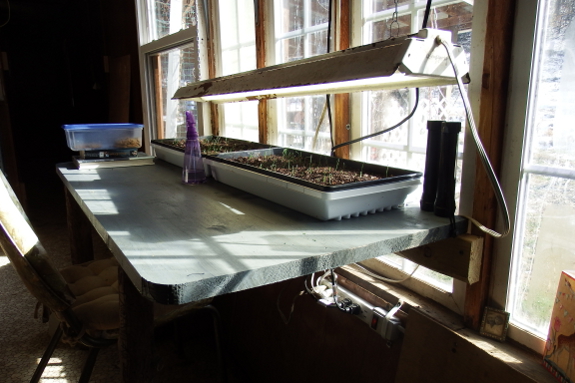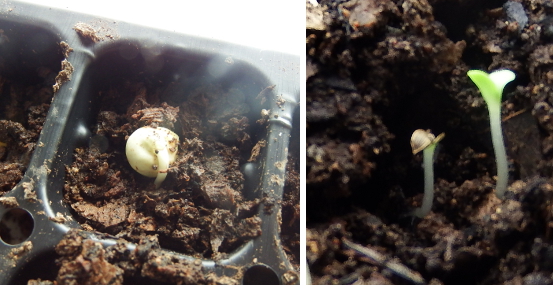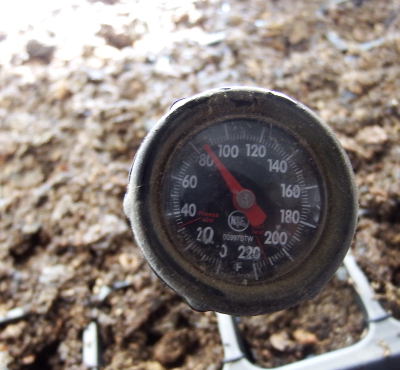
Keep peas off the heating mats

In every part of gardening, there are inevitably setbacks when you try something new. My fancy seed-starting setup
started off great, producing healthy onion seedlings and quickly
sprouting lettuce and kale seeds. But the peas refused to come up. And
when I poked in the dirt atop the latter, I discovered that every single
seed had rotted in the ground.

Putting on my thinking
cap, I came up with three potential problems. Possibility one --- peas
hate stump dirt. Possibility two --- the year-old pea seeds just weren't
viable. Or --- the possibility I suspected was actually the most
relevant --- our new heating mats exceeded the maximum germination temperature for these cold-weather legumes.
 The trouble was, I bought a cheap seed mat without a thermostat,
and I soon found that the device runs a little hotter than the heating
pad I'd been using previously. On a warm day with the heating mat on,
soil temperature was right at 85, compared to a non-heated tray that
clocked in closer to 72. Sure enough, 85 is listed as the maximum
germination temperature for peas.
The trouble was, I bought a cheap seed mat without a thermostat,
and I soon found that the device runs a little hotter than the heating
pad I'd been using previously. On a warm day with the heating mat on,
soil temperature was right at 85, compared to a non-heated tray that
clocked in closer to 72. Sure enough, 85 is listed as the maximum
germination temperature for peas.
To test this hypothesis, I
started another round of pea seeds, this time off the heating mat but
using seeds from the same packet planted in the same stump dirt. Sure
enough, three days later, this second round of peas had broken dormancy
and were sending down roots. Success!
Moral of the story: keep
peas off the heating mat but put everything else on the heating mat
until they sprout. I'm curious to see what my new setup teaches me next.
Want more in-depth information? Browse through our books.
Or explore more posts by date or by subject.
About us: Anna Hess and Mark Hamilton spent over a decade living self-sufficiently in the mountains of Virginia before moving north to start over from scratch in the foothills of Ohio. They've experimented with permaculture, no-till gardening, trailersteading, home-based microbusinesses and much more, writing about their adventures in both blogs and books.
Want to be notified when new comments are posted on this page? Click on the RSS button after you add a comment to subscribe to the comment feed, or simply check the box beside "email replies to me" while writing your comment.

David --- It depends on the vegetable variety and your house temperature. We use wood heat, so winter temperatures in our trailer often get down to 40 degrees at night. That dramatically slows seed germination! In our situation, yes, I've done side-by-side trials and shown that seed mats are extremely handy for faster, more thorough germination.
That said, if you live in a climate-controlled house, you might get away with just putting flats in a warm spot like on top of your fridge or water heater. It just depends on how warm your house generally stays at night....